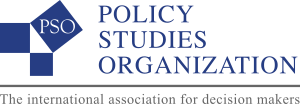
2013 Speakers and Topics
View the schedule at a glance.
All the sessions in this schedule are listed below, in consecutive track order. Click on each of the sessions below to read the abstracts and speakers’ biographies. Note sessions in tracks 4 and 5 are 30-minute sessions for individual speakers, while the rest are panels in 1-hour sessions.
As in previous years, this year’s event ended with a lecture in the evening, co-sponsored by the Policy Studies Organization, organized as part of a Lecture Series by the Philosophical Society of Washington. Locate the entry and the link at the bottom of the list of sessions below.
As in 2012, Infragard National’s EMP SIG held a meeting at the Dupont Summit on Mitigating High Impact-Threats to Critical Infrastructure. Panel discussions focused on cost-effective ways to mitigate these threats including the use of hardening centralized systems such as the grid and emergency communications, and providing local solutions such as distributed energy systems and communications. Infragard is an FBI sponsored non-profit association of individuals interested in the security of critical infrastructure.
I. VENUE: Whittemore House – Main Auditorium
8:30 am – 5:30 pm
Chair: Chuck Manto, Infragard National EMP SIG Manager
Confirmed to date: Former Director of the Central Intelligence Agency (CIA) Hon. James Woolsey, Assistant Secretary of Defense for Homeland Security Paul Stockton, Congressman Roscoe Bartlett, and many others. Click here to see the InfraGard EMP SIG portion of the Dupont Summit program. Dupont Summit attendees are invited to attend these sessions as well.
II. VENUE: Whittemore House – 1870’s Room, Library, Blair Room, Harriman Room, Past Presidents Room
Track 1 – 1870’s Room
9:00 – 9:50 am
Global Health and Its Impact on National Security
Chair: Bonnie Stabile, George Mason University
Julie Fischer, George Washington University
Rebecca Katz, George Washington University
Michael Ingerson-Mahar, US Department of Defense
Matthew Lim, US Department of Health and Human Services
10:00 – 10:50 am
Online Professional Development as a Pathway Toward an Informed Citizenry: Water Management Issues in Texas
Chair: Whitney Shepard, Policy Studies Organization
Richard G. Boehm, Texas State University
Carmen P. Brysch, National Geographic Society
11:00 – 11:50 pm
Science to Society
Chair: Karan Powell, American Public University
Diana H. Fishbein, RTI International
William A. Aldridge, University of North Carolina at Chapel Hill
Kenneth M. Jones, Annie E. Casey Foundation
Talib Horne, Living Classrooms Foundation
Robert C. Scott, United States House of Representatives
12:00 – 12:50 pm
The Big (Data) Bang: Prospects and Challenges for the Future
Organizer: Connie L. McNeely, George Mason University
Chair: Jong-on Hahm, National Science Foundation
Laurie Schintler, George Mason University
Rajendra G. Kulkarni, George Mason University
Patricia White, National Science Foundation
R. Saylor Breckenridge, National Science Foundation
Roger Stough, George Mason University
Janine Wedel, George Mason University
Vasant Honavar, Pennsylvania State University
Scott Weidman, National Academy of Sciences
1:00 – 1:50 pm
Anthropological Engagements with Climate & Environmental Change: Whither Policy?
Chair: Shirley Fiske, University of Maryland
Ed Liebow, American Anthropological Association
Christine Miller Hesed, University of Maryland
Satsuki Takahashi, George Mason University
Susan Crate, George Mason University
2:00 – 2:50 pm
Community-level Climate Adaptation in Coastal Regions: A Transatlantic Exchange
Chair: Dominic Marcellino, Ecologic Institute
Michael Orbach, Duke University
Grit Martinez, Ecologic Institute
3:00 – 3:50 pm
Humanist Interventions into Science and Technology Studies on Energy, Climate, and the Environment
Chair: Matthew Brewer, Policy Studies Organization
Models, Science Prototyping, and the Macro-Micro World of Energy
Clarissa Ai Ling Lee, Duke University
Representing Climate Change in Fiction: Attempts and Challenges
Stephanie Bernhard, University of Virginia
Converting Grass Into Gas: What Are the Implications of reconstituting plants as energy crops for biofuels?
Marcia Davitt, Virginia Tech
(De)visualizing Disaster: Assessing Discursive Strategies to Render the Gulf Oil Spill Invisible
Jennifer L. Lawrence, Virginia Tech
Track 2 – Library
9:00 – 9:50 am
Fracking in North Carolina: a Case study in Civic Engagement
Chair: Jill Kurtz, American Public University
Kristen Obst, American Public University
Molly Whitworth, American Public University
10:00 – 10:50 am
Technology and Global Health Policy: Focus Transportation
Chair: Arnauld Nicogossian, George Mason University
Moderator: Naoru Koizumi, George Mason University
Roger Stough, George Mason University
Laurie Schintler, George Mason University
11:00 – 11:50 pm
Disaster Health Resilience
Chair: Jeffrey Stiefel, DHS
Moderator: Arnauld Nicogossian, George Mason University
Darrin Donato, HHS-ASPR
Paula Scalingi, Bay area Center for Regional Disaster Resilience, The Scalingi Group
12:00 – 12:50 pm
Eating Cake: Restoring our Economy and our Environment
Chair: Karan Powell, American Public University
Jon Allan, Office of the Great Lakes, Michigan
Kathryn Buckner, Council of Great Lakes Industries
George Heartwell, Mayor, Grand Rapids Michigan; Great Lakes-St. Lawrence Cities Initiative
Allegra Cangelosi, Northeast-Midwest Institute
1:00 – 1:50 pm
Emerging Trends in Digital Scholarship
Chair: Jill Kurtz, American Public University
Melissa Layne, American Public University
Phil Ice, American Public University
Sarah Canfield-Fuller, American Public University
2:00 – 2:50 pm
Online STEM labs: Myth or Reality
Chair: Guillermo Izabal, PricewaterhouseCoopers LLP
Dan Benjamin, American Public University System
Danny Welsch, American Public University System
3:00 – 3:50 pm
Engagement Strategies to Leverage Public Interest in Deep Space Missions
Chair: Rahmin Bender, Policy Studies Organization
SpaceSoc’s Public Campaign to Take Humans to Mars
Tom E. Diffenbach, SpaceSoc
Anmol Singh, SpaceSoc
Lifeboat Foundation’s Response to NASA’s Asteroid Initiative Public Engagement Request
Kevin Berry, Legendary Projects
Track 3 – Blair Room
9:00 – 9:30 am
Respond and Deliver? Persuasion and the Politics of Taxes, Jobs, and Climate Change
Chair: Rex Kallembach, Kallembach & Associates
Graham Bullock, Davidson College
9:30 – 10:00 am
Assessing Equity and Justice in Energy Transition Policy
Chair: Rex Kallembach, Kallembach & Associates
Jason O’Leary, Arizona State University
10:00 – 10:50 am
Responsible Innovation in Research, Development and Commercialization
Chair: Walter D. Valdivia, The Brookings Institution
Rachelle D. Hollander, National Academy of Engineering
India Hook-Barnard, National Academy of Sciences
Jathan Sadowski, Arizona State University
11:00 – 11:50 pm
The History of Public Health Practice: Lessons for the Future
Chair: Rahmin Bender
Angela Matysiak, Policy Studies Organization
Kathryn Morris, Southern New Hampshire University
Preeti Dhillon, PLAN International USA
12:00 – 12:50 pm
Participatory Technology Assessment: Promising Developments and Opportunities at Home and Abroad
Chair: Mahmud Farooque, Arizona State University
Darlene Cavalier, Arizona State University
Kathryn C. Reeves, University of Michigan
Chang Liu, Arizona State University
Peter Donlevy, The Highland Group, Inc.
1:00 – 1:50 pm
Workshop on the “Great STEM Disconnect and Divide”: Overcoming barriers after Completing the R&D
Chair: Whitney Shepard, Policy Studies Organization
Martin Dudziak, The Lifeboat Foundation
Gordon Miller, G3 Systems, Inc.
Rao Mandava, TetraDyn LTD.
Viktor Sokolyuk, Church World Service Immigration and Refugee Program
2:00 – 2:50 pm
Partnering To Help Align STEM Push and Pull
Chair: Sandra Chapman
Michael M. Simpson, QinetiQ-North America
Jason Feser, Office of Naval Research
3:00 – 3:50 pm
Cybernetics and Policy Studies
Chair: Guillermo Izabal, PricewaterhouseCoopers LLP
A General Theory of Regulation: Implications for Science Policy and Educational Policy
Stuart A. Umpleby, George Washington University
Reframing Federal Microgrid Development
Kent C. Meyers, Leidos
Reflexivity of the Ocean and the Human
Peter Tuddenham, The College of Exploration
When Good Enough is Better than Best: Cybernetics and Design, Preconditions and Policy
Ranulph Glanville, American Society for Cybernetics
Track 4 – Harriman Room
9:00 – 9:30 am
Barriers to Transdisciplinary Research and Dissemination: Why Don’t We Play Nicely Together?
Chair: Guillermo de los Reyes, University of Houston
Michael Halpern, RTI International
9:30 – 10:00 am
Increasing Interest of Emerging Technologies Within Students and Improvement Within STEM Education
Chair: Guillermo de los Reyes, University of Houston
Dustin Ashley, Mountain Empire Community College/Southwest Virginia Community College
10:00 – 10:30 am
Implementing Sustainable Conservation Measures
Chair: Guillermo de los Reyes, University of Houston
John Larson, National Association of Conservation Districts
10:30 – 11:00 am
The Cost of Green Infrastructure: Cheaper Than We Thought
Chair: Guillermo de los Reyes, University of Houston
Mark Focht, American Society of Landscape Architects
11:00 – 11:50 pm
Panel on Nuclear Energy Policy Issues
Chair: David Oppenheimer, Pathion Inc.
March 2011 Earthquake and Tsunami in Japan: Some Implications for the Safety of U.S. Nuclear Power Plants in Seismically Active Areas
Paula Gordon, Lifeboat Foundation
Breaking The Nuclear Waste Impasse: Progress in the Face of Federal Government Inaction
Jim A. Hamilton, National Spent Fuel Collaborative
12:00 – 12:50 pm
The Balance Between Federal and State Governments in Homeland Security and Risk and Emergency Response Issues
Chair: Rahmin Bender, Policy Studies Organization
Mark Riccardi, American Military University
Robert Redding, American Military University
John Dolan Redding, American Military University
1:00 – 1:30 pm
The Teacher-Scientist and the Making of STEM Scholars at the Pre-Tertiary Level in the Information Age
Chair: Matthew Brewer, Policy Studies Organization
Horace Walcott, Brooklyn Technical Highschool
1:30 – 2:00 pm
The Changing Face of Citizenship as a Result of Technological Advances in Western Civilization
Chair: Matthew Brewer, Policy Studies Organization
Manuel Perez, BSA Compliance
2:00 – 2:50 pm
Language Death in the Digital Age
Chair: Andras Kornai, Hungarian Academy of Sciences; Computer and Automation Research Institute
Kathleen Egan, Department of Defense
Terence Langendoen, University of Arizona; National Science Foundation
3:00 – 3:50 pm
Panel on Current Space Policy Issues
Chair: Marshall Eubanks, Asteroid Initiatives LLC
The Leadership Challenge of Cosmic Hazards and Planetary Defense in Modern Technological World
Joseph N. Pelton, Space and Advanced Communications Research Institute
US Space Policy for Treaty
Amalie Sinclair, Leeward Space Foundation
Track 5 – Past Presidents Room
9:00 – 9:30 am
Terror Strategy, Al-Qaeda, North Korea, and Technological Threat
Chair: Nicholas Heisig, University of Houston
Sunny Lee, Institute for Korea-US Political Development
9:30 – 10:00 am
Medical students’ attitudes toward pharmaceutical marketing – first results of comparative study between US and Poland
Chair: Nicholas Heisig, University of Houston
Marta Makowska, Warsaw University of Life Sciences
10:00 – 10:30 am
Surveying the E-Learning Landscape
Chair: Nicholas Heisig, University of Houston
Phil Ice, American Public University System
10:30 – 11:00 am
Convergent Threats – Mingled Technologies
Chair: Nicholas Heisig, University of Houston
Robert McCreight, George Washington University
11:00 – 11:30 am
Sophisticated Interdependence in Climate Policy: Federalism in the United States, Brazil, and Germany
Chair: Rex Kallembach, Kallembach & Associates
Vivian E. Thomson, University of Virginia
11:30 – 12:00 pm
Compliance Cyber Security Limits Innovation in Cyber Defense of Electric Infrastructure
Chair: Rex Kallembach, Kallembach & Associates
Rita Wells, Idaho National Laboratory
12:00 – 12:30 pm
Why the Global Economy Fails to Maximize Innovation and How to Fix it
Chair: Rex Kallembach, Kallembach & Associates
Robert Atkinson, Information Technology and Innovation Foundation
12:30 – 1:00 pm
Infrastructure Adaptation and Resilience
Chair: Rex Kallembach, Kallembach & Associates
Tom Lewis, The Louis Berger Group
1:00 – 1:30 pm
The Case for Taxing and Regulating Marijuana Like Alcohol
Chair:
Dan Riffle, Marijuana Policy Project
1:30 – 2:00 pm
’Complexipacity:’ A New Normal for Policy Making
Chair: Liz Johnson, University of North Carolina-Charlotte
David Pearce Snyder, The Futurist
3:00 – 3:50 pm
How to Implement Economical Space Based Solar Power
Chair: Meg Abraham, The Aerospace Corp
Keith Henson, Lifeboat Foundation
John Strickland, Lifeboat Foundation
II. VENUE: John Wesley Powell Auditorium*, evening session, 8:15 pm, as part of a Lecture Series of the Philosophical Society of Washington
Behavioral Economics: Designing Experiments that have Policy Applications
Daniel L. Goroff, Vice President and Program Director at the Alfred P. Sloan Foundation
*Held at the John Wesley Powell Auditorium, adjacent to the Cosmos Club, 2170 Florida Avenue NW, Washington DC 20008. Entrance is through the club gate, the first right-hand entrance on Florida Avenue north of the intersection with Massachusetts Avenue NW. The auditorium entrance is to the left of the gate.
***Assertions and opinions in these presentations are solely those of the above-mentioned author(s) and do not necessarily reflect the views of The Policy Studies Organization, which expressly does not take positions on policies.
